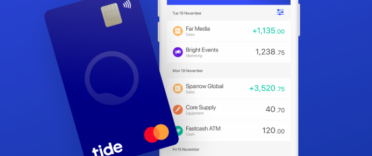
What is a business loan?
A business loan is a financial product that involves a business borrowing money that will be repaid in the future. As with most loans, a business loan will usually require monthly repayments in order to pay back what has been borrowed (the capital), plus any interest and fees.
The business could look to a bank for a loan, approach a specialist provider or access a government borrowing scheme. The business will often have to explain why the loan is required, what the money will be spent on and how the capital will be paid back.
The extra funds could be required to meet day-to-day costs, fund unexpected expenses or finance growth. Whatever the reason for the business loan, interest will usually be applied to the borrowed amount. Some loans may also need to be secured against assets owned by the business or guaranteed by a director.
Most types of businesses can access borrowing in the form of a business loan, though some lenders will only offer finance to limited companies. Loans to limited companies are not usually regulated by the Financial Conduct Authority (FCA). However, lenders will often need to be regulated by the FCA in order to lend to sole traders or partnerships.
We explain the processes involved in a business loan in our article 'How do business loans work?'.
What can you use business loans for?
Business loans can be used in a variety of different ways to fund a company’s expenses. The purpose of the loan should be business-related, which could include financing:
- Staff salaries
- Staff training
- New business equipment
- New marketing campaigns
- Relocation costs
- Stock purchases
- Business expansion
- Debt consolidation
Business loans can also be used to cover cash flow issues or fund everyday bills in the case of a drop in revenue.
Who can get a business loan?
Almost any business can apply to access a business loan of some kind. Keep in mind that some providers will only lend to limited companies, but sole traders and partnerships should still be able to apply for financing elsewhere. You may also find your business needs to be VAT registered in order to apply.
Your company’s chosen lender may also request that you meet additional criteria – such as a minimum turnover and two full years of accounts. However, there will also be lenders happy to accept borrowers with a lower turnover or limited trading history. Additional strict rules are applied by most lenders. For example, an individual applying for a business loan will usually need to be a UK resident over the age of 18.
As with personal loans, the application process requires a credit check to test your company’s reliability as a borrower. In some cases, the personal credit history of the individual applying will also be considered. If you or your business have a poor credit history and a low credit score, you may find that your application is rejected or you are offered a loan with worse terms than you were expecting. This could be in the form of a higher interest rate, a different repayment period or a reduced borrowing amount.
In some cases, the lender may request a valuable item as collateral to secure against the loan. This could be property or equipment that could be sold if you or your business are unable to repay the loan in full.
Read our article 'Who can get a business loan?' to learn more.
What are the risks of a business loan?
A business loan comes with the same main risk as all other loans – if your financial situation changes, you may struggle to pay it back. Late repayments can mean you have to pay extra charges, while missing payments altogether will damage your credit score and lead to you paying additional fees and extra interest. If a business defaults on a loan entirely and cannot repay the borrowed money, any assets held as security could be sold and individuals associated with the company could be liable for the debt.
Failing to repay a loan can have a negative impact on your personal credit score or your company’s credit score. You should also consider the risk of applying for a business loan and not being approved. Credit applications will leave a mark on your credit file. Too many applications in a short period will suggest you are struggling with your finances. This could make you or your business less appealing to lenders in the future.
What are personal guarantees by directors?
A personal guarantee involves a company director taking on a level of liability for the business’s debts. If the company cannot meet its repayment obligations, the responsibility of paying back the loan could fall to the nominated director.
Some lenders will require a personal guarantee in order to approve a business loan or offer its best rates. This is because it adds an extra level of protection for the lender in the event that the business cannot repay the money it has borrowed.
Pros and cons of a business loan
Applying for credit will not be the right financing option for every company. Here are the key advantages and disadvantages of a business loan to help you make the right call.
Pros of a business loan
- Borrowing money will likely allow your business to access money faster than if you waited for it to accumulate the same amount through revenue.
- You can grow your business at speed without waiting for revenue to increase in order to fund extra staff, new equipment or other expenses.
- Expenditure can be spread over a long period of time, allowing your business to maintain cash reserves. We explore long-term loans in our article 'What are long-term business loans?'.
- Taking out a loan means you can keep your existing business structure and secure extra cash. This would not be possible if you raised money through selling a stake in the company.
- You can repay the money in regular instalments over a fixed period of time. This can help you plan for the business’s financial future.
Cons of a business loan
- The business will need to repay the borrowed money, plus interest. This means that borrowing is more expensive than building a pot of cash through revenue streams.
- Taking out a secured loan will mean putting a valuable asset at risk of repossession, should the business be unable to pay the debt.
- Missed payments can lead to significant fees, additional interest and borrowing becoming more difficult in the future.
- In some cases, a loan will need to be personally guaranteed by a company director. This can make that individual liable for the debt if the business cannot repay the money.
Do companies have credit ratings?
A business will usually have a credit file and credit rating, just like any individual applying for credit. When your business applies for a loan, the lender will run a check on its credit file to assess the company's credit history. This could be a credit file held by any of a number of business credit reference agencies (CRAs), including Experian and Equifax. The effect of this is that your business will not have one single credit score.
A credit check on a company will include information on County Court Judgements (CCJs) from the Registry Trust and accounts filed at Companies House. One way to boost your business’s credit score is to keep these up to date and filed in full, rather than as abbreviated accounts.
We explain business credit scores in more detail in our article 'What is a business credit score?'.
Having a poor credit rating will not necessarily block your business from being able to borrow money. We have more information in our article ‘How to get a business loan with bad credit’.
How to get a business loan
You can get a business loan by applying online, seeking out a specialist provider or going to a high street bank. Read more in our article ‘How to get a business loan’.




